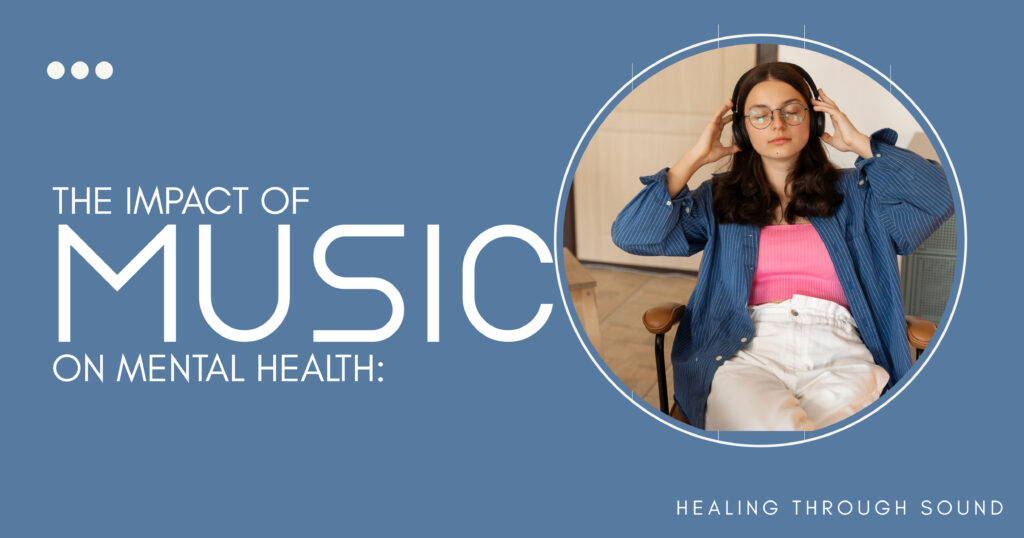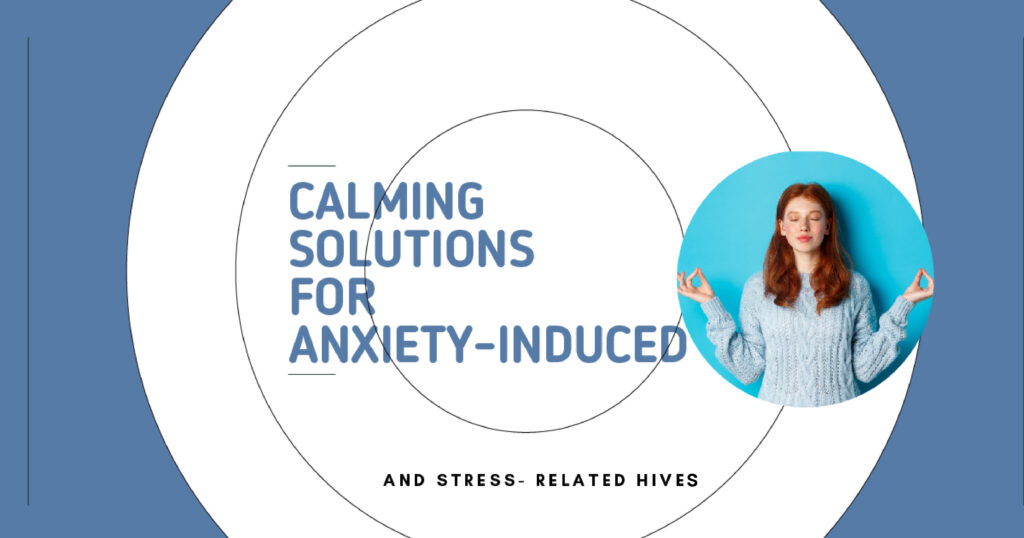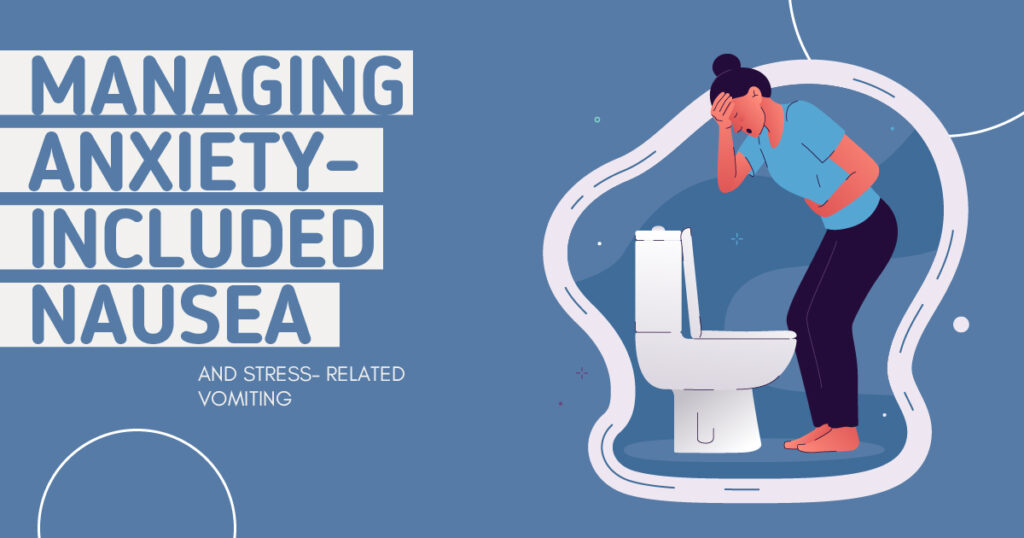Does it not amaze you how a single song brings back to mind a memory of a specific moment in our lives? Maybe it reminds you of a carefree summer or a bittersweet leave-taking. After all, music has the fabulous power to evoke emotions and to profoundly affect your experiences.
Essential Takeaways
- Music, with its soothing melody and rhythm, has the potential to powerfully impact an individual’s mood and sense of well-being.
- Music therapy is a well-defined method to make the most of music therapy for relief from mental health.
- Adding music to your daily routine is a fine way to improve emotional well-being, providing an easy and enjoyable way to support your mental health journey.
From the day it began, man has used music for reasons beyond just entertainment; he used it to say something and heal. This language transcends boundaries; it allows a person to express their innermost feelings and connect with others.
Why Study Music and Mental Health?
Given the hectic pace in today’s world, mental health issues are dramatically on the rise. According to WHO estimates, 1 out of 5 people will experience a mental health issue in any given year. And with the ever-growing list of stress and depression cases, anxiety is depicted in multiple ways, but there are always ways to seek help for healing that is where music plays its role.
Studies have been able to show that substantial evidence exists regarding music forming part of the emotional uplift process in our lives. For instance, during the bad times, it helps boost our mood and, at some other times, alleviates a sense of calmness and relaxation.
Overall, the impact of music on mental health is undeniable. Quite a number of studies reveal that listening to or doing music has been associated with reduced stress, improved mood, and heightened levels of cognitive functioning. But how is it all possible? Let’s get into the science!
San Diego Mental Health
The Science Behind Music and Mental Health
How Music Affects the Brain
Every time you hear a song, several regions of your brain get energized, including those relating to emotions, memory, and even movement. What is interesting about this activity is that it is not casual but, instead, something related to a complex interplay between neurotransmitters and hormones.
Among the major players is dopamine, often called the “feel-good” neurotransmitter. The so-called “pleasure curves” are produced, in a sense, when dopamine rushes through your brain upon listening to a pleasing piece of music. Meanwhile, music can also release cortisol, known as the “stress hormone,” and can help work its way out of feelings of worry and tension.
It has been proven that music stimulates the brain’s limbic system, which governs our emotions. That means particular tunes, rhythms, or just a single word can suffice to evoke different feelings, from happiness and glee to sadness and nostalgia. That emotional attachment to music can be very strong in aiding individuals in processing their emotions and experiences.

Emotional Resonance with Music
Ever realize how one song can actually make you feel happy, calm, or sad? All this is because your brain is wired to react to music at an emotional level. Different types of music trigger different emotions in your head. A fast-paced pop song will surely get someone dancing, while some really nice classical pieces are meditative and relaxing.
Again, musical memory plays its part in emotions because many of our memories seem to be bound up with the songs of our lives. Sometimes, hearing a certain piece of music can invoke clear recollections and even bring with them the emotions that have been attached to those memories. It is for this reason that music often becomes the port in which people escape during their emotional storms—that it provides a place where the feelings they are using to cope can be anchored.
Music Therapy: A Therapeutic Approach
What Is Music Therapy?
Music therapy is an increasingly emerging field of expertise in which the elements of music are applied to a wide range of psychological, emotional, and physical problems. Having undergone certification, music therapists use musical interventions with clients to achieve specific therapeutic goals, such as improved mental health, enhanced social skills, or recovery of physical functions.
This method can include listening to music, composing a song, playing a musical instrument, or even moving to music. In this regard, it finally boils down to the individual’s needs, making this a versatile tool in the mental health field.

Evidence of Effectiveness
Many authors proved that music therapy is a very effective aid in the treatment of psychiatric disorders. For example, such research was published in the Journal of Music Therapy: people with depression had significant improvements after passing through some courses of music therapy. Later on, depression diminished and even anxiety, while at the same time, the positive mood and general well-being improved.
It has also been helpful with patients suffering from PTSD, anxiety disorders, and even chronic pain conditions. Through engagement with music, clients have been able to evoke the expression of feelings they could not illustrate through words, thus creating a constructive space in which some of life’s greatest challenges can be processed.
Practical Applications of Music for Mental Well-Being
Creating Playlists for Mood Enhancement
One of the most straightforward ways to engage with music and your mental health is to curate playlists. This simply means selecting the right songs to improve your day, pump up a workout, or even help you relax after a long day. Here are a few tips for creating your own mood-enhancing playlists:
- Identify Your Mood. As you sit there, creating your playlist, take some time to reflect on how you’re feeling. Do you want to feel energized, calm, and reflective? Identify your mood first to help you decide which song goes where.
- Mixing Styles. Do not be afraid of mixing styles! Sometimes, it might just be so that an upbeat pop song pairs well with a soulful ballad. Experiment with these styles to see what suits you.
- Consider the Tempo. Faster songs will boost energy and motivation, whereas slower songs may keep a person relaxed. Listen to the tempo of the songs you selected.
- Personal Favorites. Add songs that make you associate. Whether they remind you of a loved one or a significant life event, you can factor in personal associations with a song to magnify the emotional charge that any song has.
Incorporating Music into Daily Life
Playing music need not be a complicated affair. Here are several easy ways of accessing the mental benefits of music every day:
- During Workout Sessions. Create a playlist of workout music that will not only lift the spirits but also enhance the workout sessions. Findings indicate that music listening during work out sessions enhances performance and improves endurance, thus providing meaningful workouts.
- In Meditation or Mindfulness. Soft, soothing music can be played in meditation and mindfulness to amplify them. Smooth instrumental tracks without such powerful beats will help you keep your cool and concentrated throughout the sessions.
- As Background Noise. For those who find complete silence deafening, they can listen to low volumes of music while doing work or studies as a way to create a serene ambiance that would also ease the stress of staying there for so long.
- Sing or Dance. Be active with music by singing or dancing. You can help improve your mood as well as express yourself while having fun.
San Diego Mental Health
Case Studies and Personal Stories
Real-life Experiences
Many people who need emotional healing have found refuge in music. As an example, take Sarah, a specific young woman suffering from anxiety and depression. Her music therapist taught her songwriting as a means to express herself in her therapy sessions. In writing and singing her songs, Sarah came to a safe place that reduced her anxiety so greatly that afterward, she did not experience a condition in such an intense way.
Another remarkable account was that of David, who had served with PTSD. He was taught to express his traumatic memory in a non-verbal manner. By creating music with fellow program participants and bringing it to people’s ears, he not only processed all that filled his heart but was somehow connecting to others, which he later realized helped him feel much less lonely on his path to healing.
What Music Therapists Have to Say
Stories of change or transformation from music therapy practice are quite widespread. For example, one music therapist recounts working with an autistic child exhibiting only minimal effective communication. This therapist worked through music with the child, helping to bring better socialization skills and even excellent emotional expression. The child blossomed in sessions as he gained increased confidence and even more social interactions.
Such testimonies truly exhibit how good music can affect a person’s mental stability, underlining its potential as an ideal therapeutic tool.
Challenges and Considerations
When Music May Not Be Very Helpful
Even though music is great and has many good benefits, there may be a time when it is not very helpful for someone. Some songs or genres may bring back negative feelings and memories for certain people. Learn to listen to your feelings and consider the music that you are choosing.
Musical entanglements might also make you even more miserable or anxious sometimes, and you should take a break or explore other genres. But at all times, do not forget your emotional well-being and seek professional advice if necessary.

Finding the Music That Suits Your Taste
Finding the suitable music is a very individualized process. Finding just the right music; sometimes, it takes time to discover what works best for you. Here are some tips that would help you find some successful music:
Experiment with Different Genres: Tune into genres that rarely strike your musical ear. You might find comforting classical songs or the upbeat rhythms of jazz that suit you.
The Future of Music and Mental Health
Innovations in Music Therapy
We are discovering the connection between music and mental health as innovative ways keep being unfolded into a brighter future. With the advancement of technology such as virtual reality and the digital platform, new dimensions of music therapy now reach those in need more easily.
Online music therapy is attracting an increasing number of people who can stay connected to therapists from home. Its flexibility can offer freedom for many people who might not have been able to access it otherwise.
The Importance of Keeping the Conversation Alive
The discussion should not end here, as we better understand the interrelation between music and mental health. Broader public awareness and education regarding the benefits of music therapy could help destigmatize such psychological issues and encourage others to seek it.
End of Discussion
In a nutshell, music is indeed a great aid in the path to improved psychological wellness. It would be in the form of creating playlists, undergoing music therapy, or in simply listening to favorite songs and how music seems to impact our mental health positively.
San Diego Mental Health
FAQs
- How does music therapy work?
Music therapy is the therapeutic use of music in caring for emotions, cognition, and social challenges. The professionally prepared therapist designs interventions based on the individual’s needs with approaches such as songwriting, playing a musical instrument, and active listening.
- Can everyone benefit from music therapy?
Absolutely! Music therapy benefits people of any age, race and anyone with any problem it anxiety, depression, PTSD, or any developmental disorder.
- What genres are appropriate to be used with mental health?
There is no one-size-fits-all answer. There is always a certain type of music for a certain individual, depending on his wishes and emotional states. Therefore, he can try experiments with various genres and find out what would work better for him or her.
- Is there a scientific basis for using music to enhance one’s mental health?
Yes, there are numerous studies to prove that music can decrease anxiety, enhance mood, and provide better overall well-being. Research backs the application of music therapy in treating various mental health disorders.
- I happened to find out that music causes me to experience negative emotions. What do I do?
Listen to your emotions. If certain songs or genres bring you unpleasant feelings, you can look for other music categories or, for example, share your experience with a therapist.








